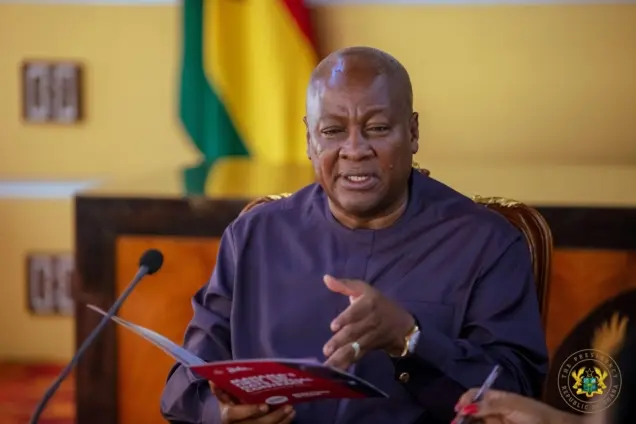The Walewale Member of Parliament, Tia Abdul-Kabiru Mahama, has sparked a heated debate by publicly criticizing the Minister for Energy, John Jinapor, over alleged irregularities in energy sector procurement. Mahama’s statements, made during a recent interview on Channel One TV, have ignited concerns about transparency and accountability within the government’s management of the energy sector. The core issue, according to Mahama, centers on claims that established procurement procedures are being bypassed, potentially undermining public trust. This article delves into the accusations made by Mr. Mahama, examines the context surrounding these claims, and explores the potential implications for the government’s handling of the energy crisis.
Mahama’s accusations against Jinapor are multi-faceted, but a central theme is the alleged circumvention of established procurement processes. According to Mahama, Energy Minister Jinapor is sidestepping established procedures in energy sector procurement, raising significant questions about oversight. These accusations stem from the Ministry’s request for emergency funding, with Mahama suggesting that the request is being used to justify non-competitive contract awards. “Since he assumed office, it has been one alarm after the other. And I understand he is doing that because it gives him the leeway to award contracts without passing through procurement,” said Mahama during the interview.
The Walewale MP also raised concerns about the prevalence of sole-sourcing in awarding contracts. He alleges that over GH₵200 million in contracts have been awarded through sole-sourcing, claiming a lack of adherence to transparency and accountability. “My intelligence and oversight suggest that over GH₵200 million worth of sole-sourcing has been done without going through the right process. He should stop the scare-mongering and be more of a hope-monger,” Mahama stated, highlighting the scale of the alleged irregularities.
The Ministry’s request for emergency funding comes in the context of ongoing fuel shortages and financial difficulties within the energy sector. Mahama acknowledges these challenges but questions whether they justify the alleged circumvention of procurement processes. The heart of the debate lies in the tension between the perceived urgency of the energy crisis and the need for adherence to established procurement protocols. While the Ministry argues that emergency funding is necessary to address immediate needs, Mahama criticizes the use of sole-sourcing as a means to avoid standard procurement procedures, emphasizing the need for compliance with procurement laws.
Mahama warns that the current approach risks eroding public confidence in the government’s handling of the energy crisis. Questionable procurement decisions raise concerns about the responsible management of resources and the overall transparency of the energy sector. He also criticized the persistent use of fear-based narratives surrounding the energy crisis. “He has a responsibility of fixing it and letting the good people of Ghana know that he is going to fix it and not to be scaremongering,” Mahama said, underscoring the importance of instilling confidence rather than fear.
Mahama stresses the critical need for compliance with procurement laws and requests greater transparency in the awarding of contracts. Addressing these concerns, according to Mahama, is essential for responsible management of the energy crisis and maintaining public trust in energy sector procurement.
The accusations leveled by Walewale MP Tia Abdul-Kabiru Mahama against Energy Minister John Jinapor underscore significant concerns regarding procurement practices within Ghana’s energy sector. The core of the issue, as presented by Mahama, revolves around alleged circumvention of standard protocols, particularly the excessive use of sole-sourcing, raising questions about transparency and accountability. As the debate unfolds, it’s imperative for stakeholders to address these concerns to ensure responsible management of the energy crisis and maintain public trust. Further investigation and adherence to proper procurement laws are crucial steps in navigating this controversy and restoring confidence in the government’s handling of the energy sector. The future of energy procurement transparency hinges on addressing these critical issues now.
Image Source: MYJOYONLINE






















